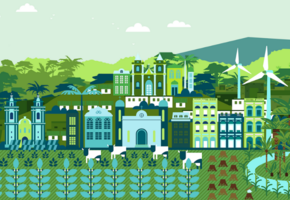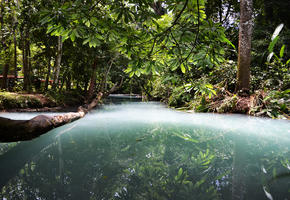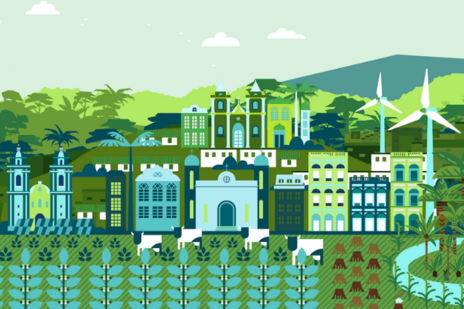
About the project
The Climate Pathway Project supports state and regional governments to develop a transformational process, or ‘pathway’, to reducing emissions.
The pathway approach gives state and regional governments choice, so that they can make an informed decision on the best way to reduce emissions while supporting economic and social development.
Our experts are working alongside the governments of Amazonas, Mato Grosso and São Paulo State (Brazil), Quintana Roo and Querétaro (Mexico), and Madre de Dios (Peru), to reduce emissions from a range of sectors including Agriculture, Forestry and Other Land Use (AFOLU) and aim to support forest conservation and land restoration.
Final pathways and actions
After two and a half years of work, each of the six governments involved in the project have successfully developed a pathway towards decarbonisation.
Here, these final pathways reports are available to download.
Amazonas, Brazil
Mato Grosso, Brazil
São Paulo State, Brazil
Quintana Roo, Mexico
Querétaro, Mexico
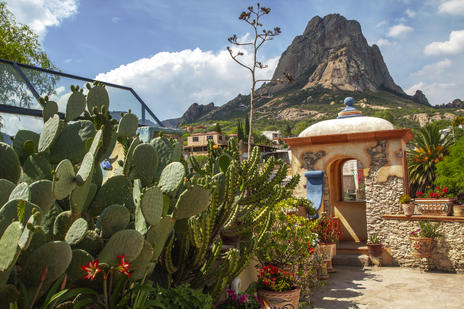
Case studies
State and regional governments participating in the project are sharing their experiences of developing a pathway to long-term emissions reduction through case studies that showcase their progress to date and plans for the future.
- Developing a pathway to decarbonisation in Querétaro, Mexico
- A pathway to forest protection in Amazonas, Brazil
- A decarbonisation pathway for Brazil’s agribusiness powerhouse, Mato Grosso
- A state on the verge of change and a pathway for continuity: Quintana Roo, Mexico
- From pathway to net zero: São Paulo’s journey
The case studies are available to download in English, Español & Português.
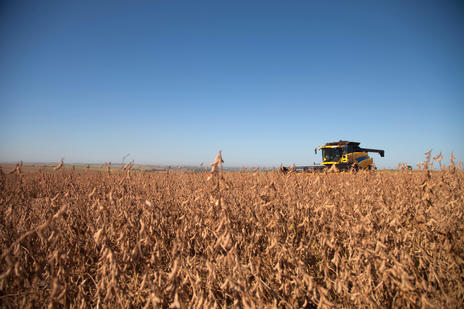
Peer learning
Peer Forums
The Climate Pathway Project delivered an online Pathway Pioneers Series and, through a series of interactive discussions, governments learned and shared experiences about pathway development and what it means to reduce emissions while strengthening economic and social development.
Pathways Communities
As part of the project, we've set up Pathways Communities of Practice allowing state and regional governments to learn from each other and co-create visions as they develop and refine their long-term emissions reduction plans.
Project objectives
Providing a tailored package of technical assistance and training
Following consultation with regional stakeholders, the project will enable states to deliver on their long-term emissions reduction plans, identifying the required technologies, infrastructure and investments and their social and economic implications. Measurement, Reporting and Verification (MRV) capacity and knowledge will be enhanced along the way.
Knowledge sharing and replication of best practice across states and regions globally
Through a series of knowledge products and online peer forums, partners will disseminate lessons learned from this project to other states and regions in the Under2 Coalition and Governors Climate Task Force. Guidance on essential components of a pathway will challenge other governments to select consistent pathways to achieve their climate goals.
Aligning regional pathways with national ambition to promote integrated climate action
Dialogues between national and regional governments will help align and coordinate climate action and long-term planning across different levels of government in Argentina, Brazil, Mexico, and Peru.
Project overviews
Project overview
Project partners
Norway's International Climate and Forest Initative
This project is supported by Norway's International Climate and Forest Initative.
The Climate Group
The Climate Group’s mission is to accelerate climate action to achieve a world of no more than 1.5°C of global warming and greater prosperity for all. The Climate Group acts as the Secretariat for the Under2 Coalition of ambitious state and regional governments committed to keeping the global temperature rise to well below 2°C. The Climate Group is responsible for leading the delivery of this project, and sharing lessons learned to members of the Under2 Coalition and other state and regional governments.
Governors' Climate and Forests Task Force
The Governors’ Climate and Forests (GCF) Task Force is a network of 38 subnational governments covering more than one third of the world’s tropical forests. The network’s mission is to empower its members and their partners to implement innovative jurisdiction-wide programs for sustainable low emissions development built upon improved forest governance, novel technical and financial mechanisms, enhanced opportunities for local communities and indigenous peoples, and ongoing leadership in national, regional, and international climate policy forums. The GCF Task Force is the primary land-use and forestry knowledge partner on this project.
Winrock International
Winrock International is a non-profit organisation with the mission to empower the disadvantaged, increase economic opportunity and sustain natural resources. With over twenty years of proved leadership in the accounting of greenhouse gases from agriculture, forestry and other land uses, Winrock seeks to build programs and global capacity to mitigate against and adapt to climate change. Winrock is the lead technical implementer of this project.
Center for Climate Strategies
Center for Climate Strategies is a mission-driven, non-profit organization that provides capacity building, facilitative and technical assistance, and model/tool development across sectors for planning, design, measurement, and implementation of multi objective policy actions and technology pathways. CCS helps developing nations and regions meet emissions reduction goals and achieve other priorities such as economic, health, resource, and strategic development goals. CCS is the decarbonization pathway technical implementer of this project.
